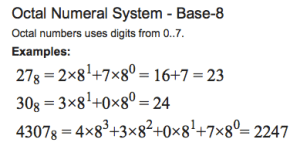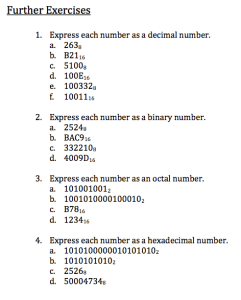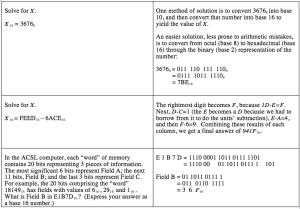Computer Number Systems – Part 2
All computers – from large mainframes to hand-held micros – ultimately can do one thing: detect whether an electrical signal is “on” or “off”. Computer programs in BASIC and Pascal are converted by various pieces of systems software into sequences of bits (Binary digITs) which correspond to sequences of on/off (equivalently TRUE/FALSE or 1/0) signals. Proficiency in the binary number system is essential to understanding how a computer works.
The Decimal Number System
The Binary Number System
Convert a Binary Number to Decimal Number
The Hexadecimal Number System
The Octal Number System
Converting between different Number Systems.
Prof. Joseph J. LaViola Number System Resources
Since binary numbers representing moderate values quickly become rather lengthy, bases eight (octal) and sixteen (hexadecimal) are frequently used as short-hand. Octal numbers group binary numbers in bunches of 3 digits and convert the triplet to a single digit between 0 and 7, inclusive.
Some online help on binary numbers
Classwork:Do parts a and b for each exercise.
Work on Tic Tac Toe project.











